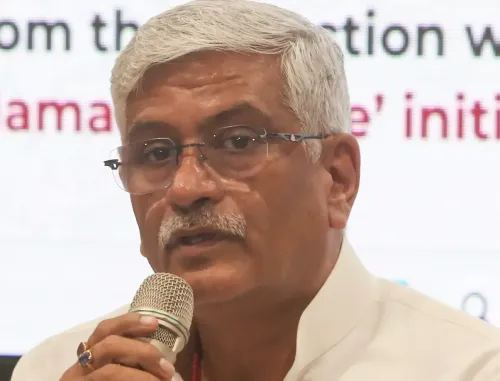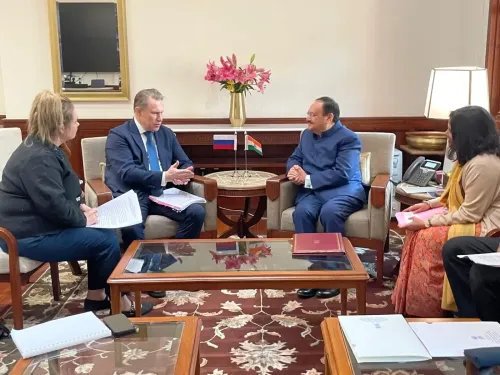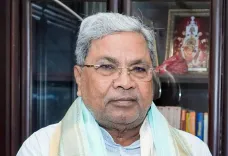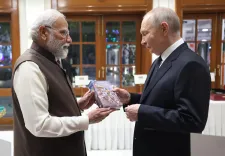Is India’s First Indigenous Antibiotic Effective Against Resistant Respiratory Infections and Cancer?
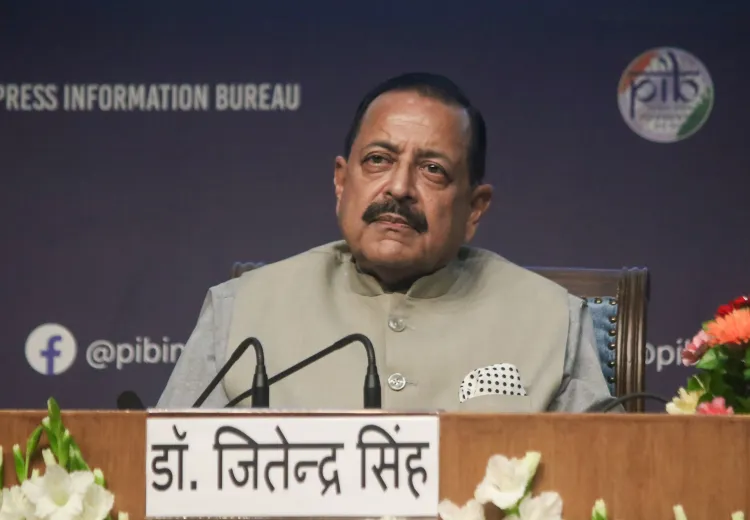
Synopsis
Key Takeaways
- Nafithromycin is India’s first indigenous antibiotic.
- Effective against resistant respiratory infections.
- Particularly beneficial for cancer patients and diabetics.
- India aims to sequence one million human genomes.
- Significant advancements in gene therapy reported.
New Delhi, Oct 18 (NationPress) Union Minister of State (Independent Charge) for Science and Technology, Dr. Jitendra Singh, announced on Saturday that India has successfully created its first indigenously developed antibiotic, Nafithromycin. This groundbreaking antibiotic is particularly effective against resistant respiratory infections and is especially beneficial for cancer patients and individuals with poorly managed diabetes.
According to Dr. Singh, this antibiotic represents the first molecule that has been entirely conceived, developed, and clinically validated within India, marking a significant advancement towards self-sufficiency in the pharmaceutical industry.
Additionally, the minister revealed that India has sequenced over 10,000 human genomes, with plans to expand this to one million.
The gene therapy trial showcased a remarkable 60–70 percent correction rate with zero incidents of bleeding, marking a pivotal moment in India's medical research.
These findings were published in the New England Journal of Medicine, highlighting India's rising status in cutting-edge biomedical innovation.
Dr. Singh elaborated on the Anusandhan National Research Foundation (ANRF), which is a crucial initiative with a total budget of Rs 50,000 crore over five years, of which Rs 36,000 crore will be sourced from private entities.
During the inauguration of a three-day Medical Workshop focused on “Harnessing Artificial Intelligence for Multi-Omics Data Integration and Analysis,” Dr. Singh emphasized the need for India to establish a self-sustaining ecosystem to foster scientific and research advancements.
He noted that countries recognized globally for their scientific achievements have typically done so through self-sufficient, innovation-driven models that include significant participation from the private sector.
Moreover, the minister announced a significant breakthrough in gene therapy, indicating the success of the first indigenous clinical trial for Hemophilia treatment. This trial was supported by the government's Department of Biotechnology and conducted at the non-governmental Christian Medical College Vellore.
Dr. Singh also remarked on the transformative impact of artificial intelligence (AI) in reshaping healthcare accessibility, governance, and decision-making.
He commended institutions like Sir Ganga Ram Hospital for leading the way in interdisciplinary approaches that merge AI, biotechnology, and genomics to enhance healthcare outcomes.




